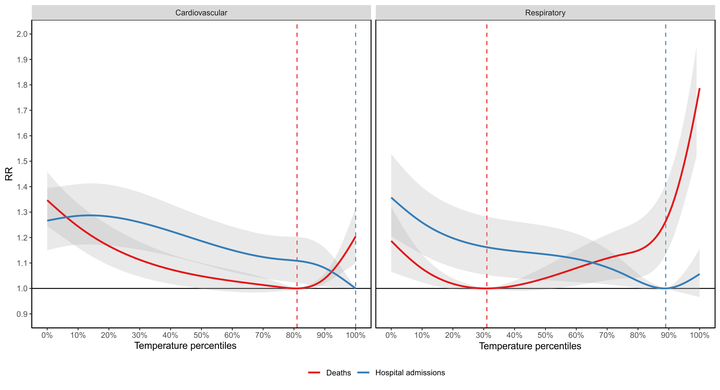Contrasting patterns of temperature related mortality and hospitalization by cardiovascular and respiratory diseases in 52 Spanish cities

Abstract
Background: Climate change is a severe public health challenge. Understanding to what extent fatal and non-fatal consequences of specific diseases are associated with temperature may help to improve the effectiveness of preventive public health efforts. This study examines the effects of temperature on deaths and hospital admissions by cardiovascular and respiratory diseases, empathizing the difference between mortality and morbidity. Methods: Daily counts for mortality and hospital admissions by cardiovascular and respiratory diseases were collected for the 52 provincial capital cities in Spain, between 1990 and 2014. The association with temperature in each city was investigated by means of distributed lag non-linear models using quasiPoisson regression. City-specific exposure-response curves were pooled by multivariate random-effects meta-analysis to obtain countrywide risk estimates of mortality and hospitalizations due to heat and cold, and attributable fractions were computed. Results: Heat and cold exposure were identified to be associated with increased risk of cardiovascular and respiratory mortality. Heat was not found to have an impact on hospital admissions. The estimated fraction of mortality attributable to cold was of greater magnitude in hospitalizations (17.5% for cardiovascular and 12.5% for respiratory diseases) compared to deaths (9% and 2.7%, respectively). Conclusions: There were noteworthy differences between temperature-related mortality and hospital admissions regarding cardiovascular and respiratory diseases, hence reinforcing the convenience of cause-specific measures to prevent temperature-related deaths.